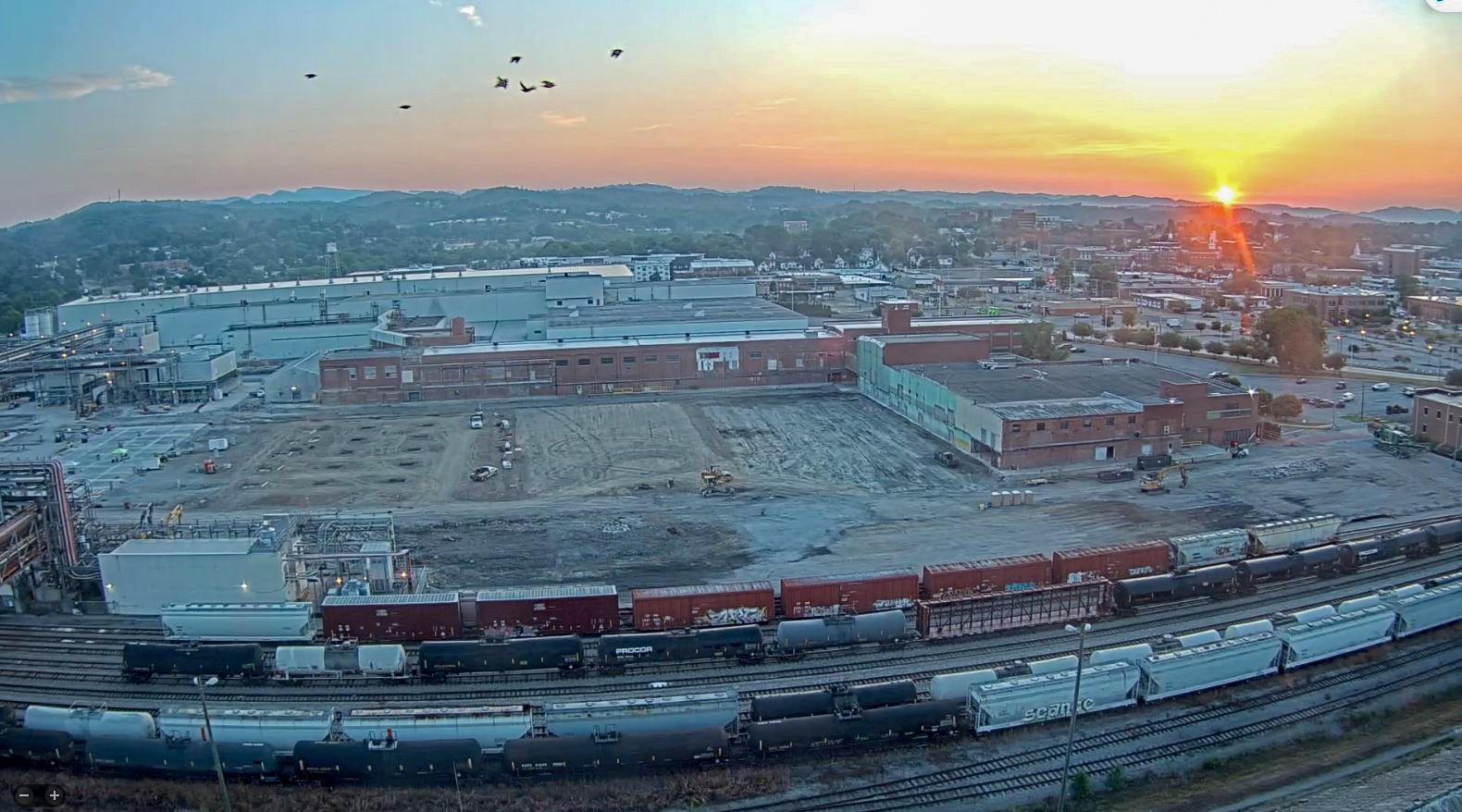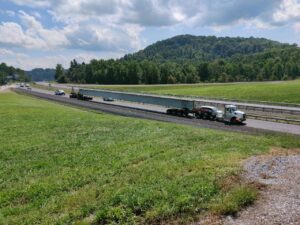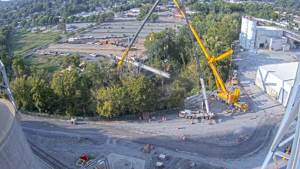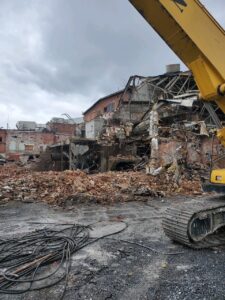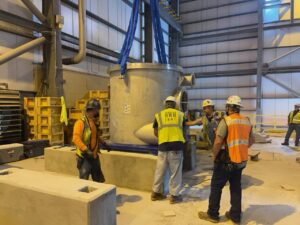Construction is underway on the Kingsport Mill’s old corrugated container warehouse. The project is yet another example of circular economy principles in action.
When the former paper mill’s conversion into Domtar’s first 100 percent-recycled packaging facility is complete late next year, the warehouse will be an important part of its central nervous system. Each year, approximately 660,000 tons of recycled boxes and other kinds of mixed recycled paper used to produce new recycled packaging products will pass through the warehouse.
Every aspect of the warehouse was planned with sustainability and circular economy principles in mind, including its location (close to the intersection of Interstate 26 and Interstate 81), the highly efficient industrial vehicles patrolling its interior, and the very concrete on which it is being built.
Easy Interstate Access
The Kingsport Mill sits in the heart of the city’s downtown. Inbound and outbound trucks routinely traverse busy main roads to reach the mill.
However, thanks to a land swap with the city of Kingsport, the new warehouse and its shipping and receiving hub will be located directly off Interstate 26, which runs past the mill.
The new location will be more convenient for large trucks entering and leaving the mill and will alleviate heavy truck traffic downtown, which is better for local businesses and residents. The move also will eliminate thousands of miles of annual wear and tear on city streets and greatly reduce noise pollution from truck traffic.
This new interstate access area was made possible by a land swap between Domtar and the City of Kingsport. That agreement traded the Cloud Park parcel for nearby Cement Hill, a 40-acre plot now being cleared for future sustainable development.
“We’re currently building a two-way bridge across Reedy Creek on the Cloud Park parcel,” Vice President of Strategic Capital Charlie Floyd says. “We laid five 160-foot pre-stressed concrete beams across the creek to ensure the bridge can withstand the heavy trucks.”
Floyd says the bridge should be completed by next spring.
Lithium Ion-Powered Industrial Vehicles
Sustainability lives inside the warehouse, too. We switched from traditional propane or lead acid battery-powered vehicles to a fleet of six lithium ion-powered industrial vehicles to reduce the mill’s carbon footprint and offer safety and maintenance benefits.
Lithium ion batteries power these vehicles more efficiently than propane or lead acid batteries. The new vehicles will be able to operate much longer on fewer charging hours with much less routine maintenance.
“The lithium ion vehicles offer an emissions benefit as well,” Mill Manager Troy Wilson says. “Propane trucks release carbon dioxide into the mill and, if not continuously cleaned, potentially create engine compartment fire hazards in the warehouse. The lithium ion vehicles are safer, cleaner and more reliable applications.”
Concrete from Mill’s Past is Literally the Foundation for Its Future
Our construction site is another place where what goes around comes around. We’re literally building on circular economy principles, having reclaimed about 31,500 tons of concrete and brick during demolition.
Instead of sending that material to a construction waste disposal site in about 1,000 dump truck trips, we had it ground down to be used as fill in the new warehouse’s construction. The material that made up the mill’s more than 100-year history became the foundation for its future.
Follow the mill’s conversion by visiting our Kingsport Mill conversion website.
Click on a photo below to view the full-size images.
